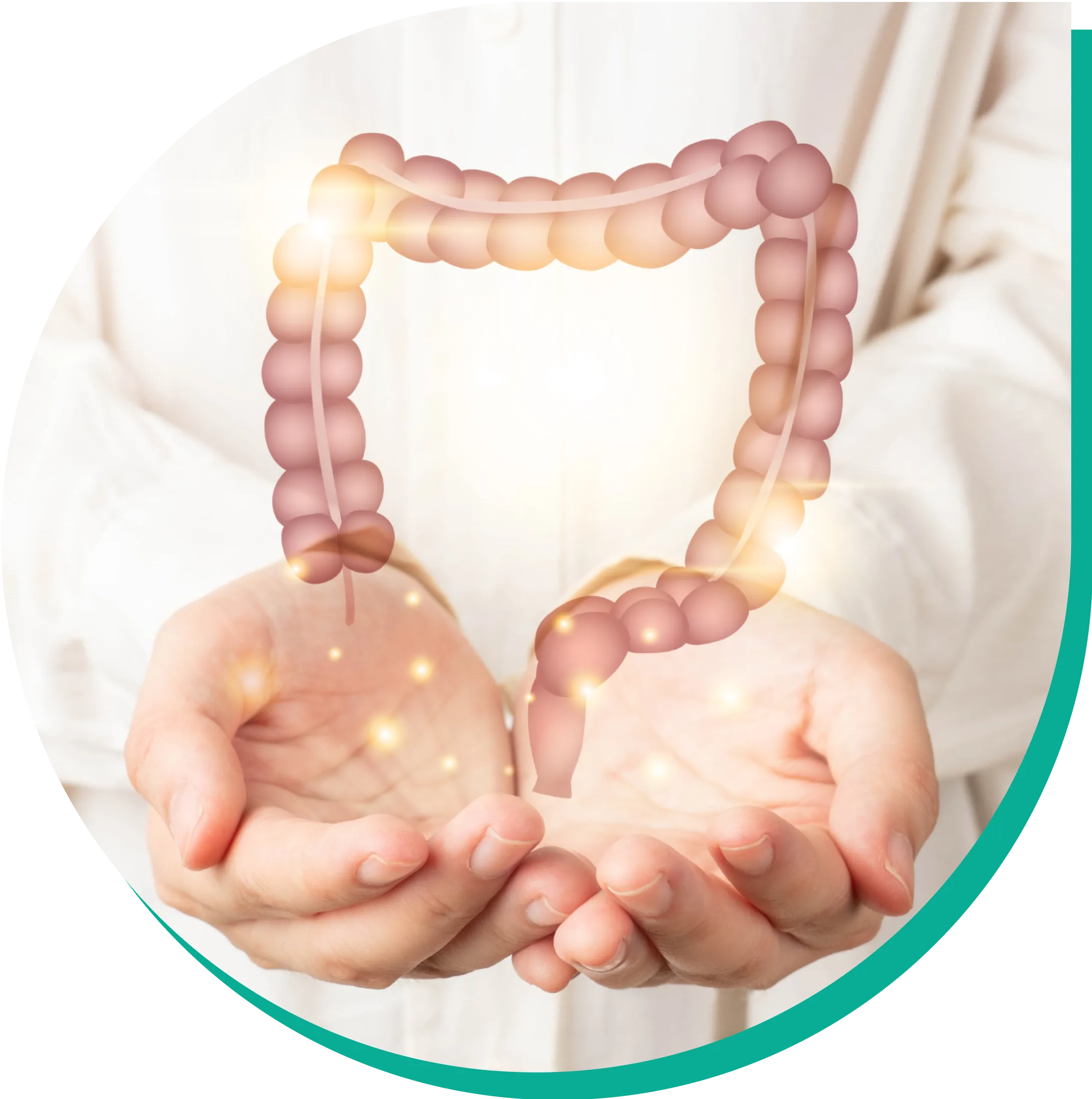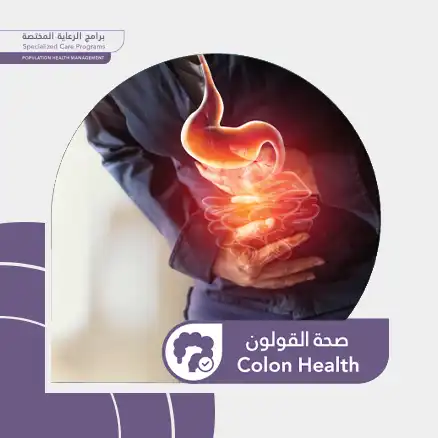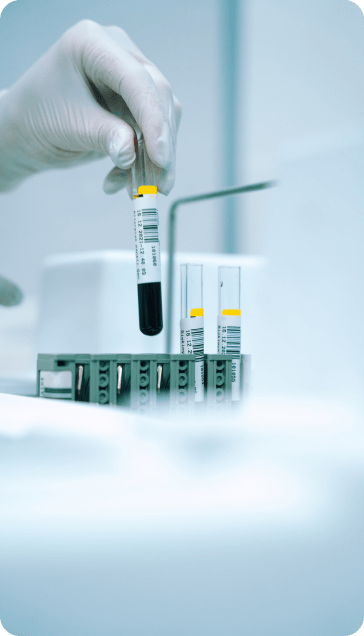
Al Borg Diagnostics
Colorectal Cancer Diagnosis
Colon and rectal cancer refers to cancer that affects both the colon and rectum. It is a disease that can occur at any age, but it is more common in older adults. It occurs due to the formation of small noncancerous clusters in the colon, known as polyps, which later develop into cancers.
For this reason, doctors and experts recommend that individuals with these polyps undergo regular screenings to prevent colon cancer and detect it early. Keep reading our article to learn about the methods of diagnosing colon and rectal cancer. (1)(2)
Colorectal Cancer Diagnosis
The diagnostic options for colon and rectal cancer include the following:
Medical history review and physical examination
During your first clinic visit, the doctor will start by asking about your medical history; the doctor may inquire about the following: (3)(4)
- Symptoms you are experiencing that prompted you to seek medical attention and receive a diagnosis.
- Previous history of benign tumors in the colon or rectum, hereditary nonpolyposis colorectal cancer (HNPCC), or inflammatory bowel disease (IBD).
- Family history of colon and rectal cancer, risk factors for the disease, or other cancers.
After gathering all the information about your medical history, the doctor will perform a physical examination by palpating the abdominal area to look for any masses or swelling. (3)(4)
Digital rectal examination (DRE)
The digital rectal examination is a physical examination performed by a doctor. During this examination, the doctor inserts a gloved, lubricated finger into the patient’s rectum to check for any masses or swelling. (3)
Blood tests
The doctor may request a series of blood tests to diagnose colon and rectal cancer, which may include the following: (3)(5)
- Complete blood count (CBC): In most cases, colon and rectal cancer can cause bleeding in the large intestine or rectum, making these individuals more prone to developing anemia. Anemia can be detected through a complete blood count test.
- Blood chemistry tests: These tests, also known as organ function tests, measure the levels of certain chemicals in the blood that reflect the functioning of specific organs. For example, abnormal levels of liver enzymes may indicate the spread of cancer to the liver.
- Tumor marker tests: Abnormal levels of tumor markers indicate the presence of colon and rectal cancer, whether in the blood, tissues, or bodily fluids. Tumor markers associated with colon and rectal cancer include carcinoembryonic antigen (CEA) and carbohydrate antigen 19-9 (CA19-9).
Early detection plays a crucial role in improving the prognosis of colon and rectal cancer.
Therefore, it is essential to undergo regular screenings and diagnostic tests as your healthcare provider recommends.
Stool Tests
These tests are performed to detect the presence of blood in the stool. The patient must collect one to three stool samples and send them to the laboratory to search for hidden blood that cannot be observed with the naked eye. (4)
Barium Enema
This test belongs to imaging tests as it involves injecting barium sulfate through the rectum and then using X-ray imaging to take a complete and clear picture of the colon, rectum, and anus. It is worth mentioning that this test is used when the patient experiences blood in the stool, abdominal pain, or when the stool test indicates the presence of occult blood. (3)(6)
Colonoscopy
Colonoscopy is the most common test for diagnosing colon and rectal cancer. It involves inserting a thin, flexible tube called an endoscope through the patient’s rectum to reach the colon. The endoscope has a lens and light that helps the doctor search for tumors.
It is worth mentioning that the doctor can also take a biopsy during the colonoscopy, which is sent to the laboratory to determine if it contains cancer cells or not. (3)(4)
Imaging Tests
Doctors also conduct several imaging tests to obtain images of different body parts and determine if cancer has spread to them. These tests may include: (3)(4)
- Ultrasound imaging.
- Magnetic resonance imaging (MRI) of the pelvis.
- X-ray imaging.
- Positron emission tomography (PET) scan.
- Vascular imaging.
You can visit any Al-Borg Diagnostics branches to inquire about the above mentioned methods of diagnosing colon and rectal cancer or choose a colon health program that suits you. You will also find a wide range of tests provided by a competent and high-precision staff.
The Importance of Diagnosing Colon and Rectal Cancer
Doctors recommend that individuals with an average risk of developing colon and rectal cancer undergo regular diagnostic tests when they reach the age of 45. However, individuals with increased risk should undergo these tests even earlier.
The importance of conducting these tests lies in achieving the following benefits: (1)(4)
- Early detection of the disease increases the chances of a cure and reduces the risk of death.
- Determining the stage of the disease and its spread to other organs.
- Assessing the effectiveness and suitability of the treatment for the disease stage.
- Monitoring for signs of disease recurrence.
References:
- https://www.mayoclinic.org/ar/diseases-conditions/colon-cancer/symptoms-causes/syc-20353669
- https://my.clevelandclinic.org/health/diseases/14501-colorectal-colon-cancer
- https://cancer.ca/en/cancer-information/cancer-types/colorectal/diagnosis#:~:text=A%20colonoscopy%20is%20the%20most,end%20(called%20an%20endoscope).
- https://www.cancer.org/cancer/colon-rectal-cancer/detection-diagnosis-staging/how-diagnosed.html
- https://www.cancer.net/cancer-types/colorectal-cancer/diagnosis
- https://www.cancercenter.com/cancer-types/colorectal-cancer/diagnosis-and-detection




